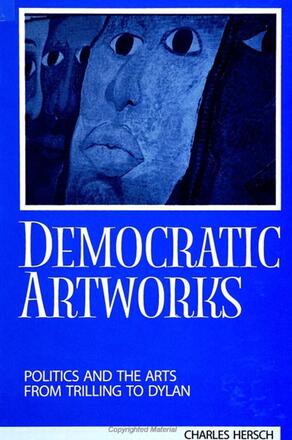
Democratic Artworks
Politics and the Arts from Trilling to Dylan
Alternative formats available from:
Focusing on the political movements of the 1950s and 1960s, this book argues that the arts can strengthen democracy by politically educating citizens.
Description
Focusing on a period in which the meaning of democracy came to the forefront of public debate, the fifties and sixties, the author argues that the arts can strengthen democracy by politically educating citizens. Hersch addresses this issue by first looking at the ideas of Lionel Trilling and the New York Intellectuals in the 1950s, as expressed through literature and social commentary, and then by showing how jazz and rock musicians in the 1960s, through their individual songs and performances, expressed the ideas and ideals of the political movements of that decade. Democratic Artworks is the first to consider the New York Intellectuals, sixties jazz, or Bob Dylan from the perspective of political theory and to focus on their contributions to democracy.
Charles Hersch is Associate Professor of Political Science at Cleveland State University.
Reviews
"Hersch demonstrates Hegel's idea that, in any historical and cultural period, there is an underlying unity that animates all forms of human activity. He shows profound spiritual affinities between all sorts of people and movements who have never before been linked together in any convincing way. Hersch develops his arguments through close interpretive readings of poems, critical essays, jazz pieces in various styles, folk and rock songs, and political manifestos. He is impressive in sheer intellectual power, but also in his fluency in engaging very different genres and media, and in his sophistication in bringing so many different forms of discourse together as a coherent whole. " — Marshall Berman, The City College of The City University of New York
"What distinguishes this book is the combination of a sophisticated but appropriately plastic understanding of 'democracy' and an equally sophisticated engagement with literature and music. The writing is clear and economical and totally free of any kind of jargon, which is, unfortunately, rare these days. " — Nicholas Xenos, University of Massachusetts at Amherst